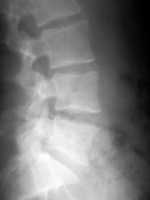Author Interviews, JAMA, Orthopedics, Pain Research, University of Pittsburgh / 09.01.2019
Lumbar Spinal Stenosis: Non-Surgical Options Compared
MedicalResearch.com Interview with:
Dr. Michael Schneider DC, PhD
Associate Professor
School of Health and Rehabilitation Sciences
University of Pittsburgh
MedicalResearch.com: What is the background for this study?
Response: Lumbar spinal stenosis (LSS) is one of the fastest growing problems in the country due to its aging population. One third of Medicare users have the condition, and it is the number one reason for spine surgery in this population. Existing research evaluates the benefits of nonsurgical treatment options compared to surgery, but there was no existing research that compared the available nonsurgical options to each other to determine the best course of treatment for each patient.
We studied three nonsurgical treatments for LSS: medical management with medications and/or epidural injections, individualized care with a physical therapist or chiropractor, and group exercise. We assessed each of these treatment methods with a questionnaire, a walking distance test, and a physical activity monitor.
(more…)


